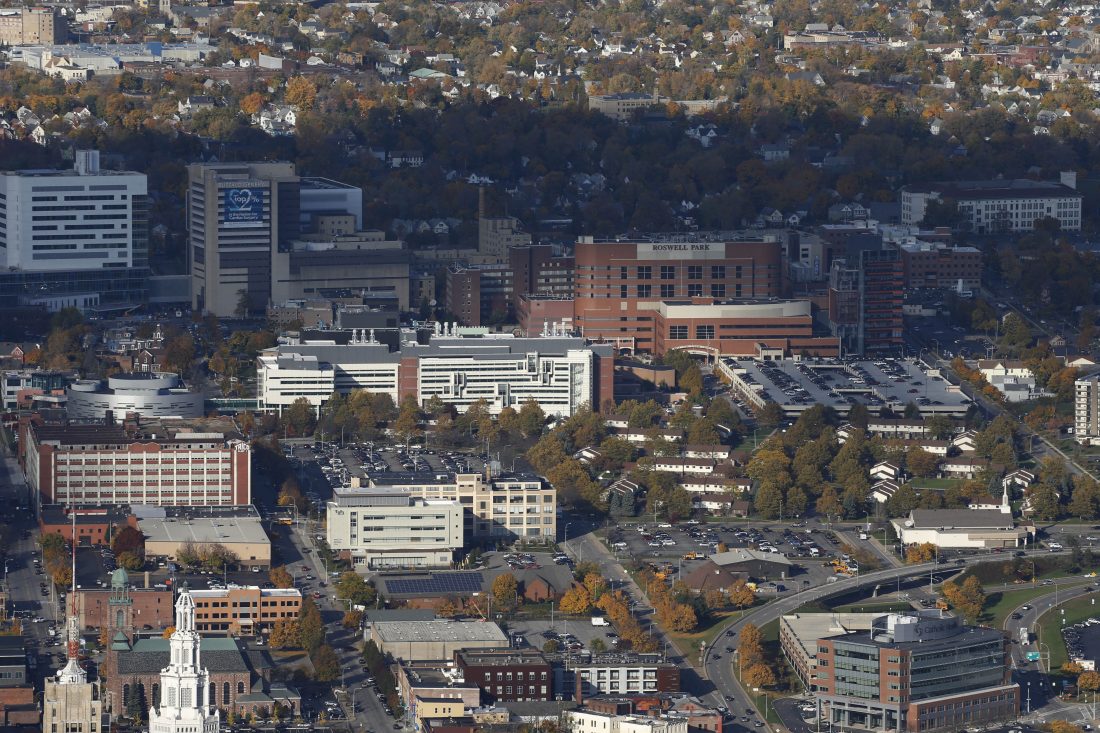Medical Campus gets $1 million to study creation of microgrid
By
A plan to create a more self-contained power grid on the Buffalo Niagara Medical Campus that would enable it to better maintain operations during blackouts moved forward Thursday when the state awarded nearly $1 million in funding to the project.
The Medical Campus plan was one of 11 projects statewide to win funding from a state-sponsored program to encourage the development of microgrids as a way to introduce more renewable energy into the power grid, while also creating stronger backup systems at essential facilities.
The funding, through the second round of the state’s NY Prize microgrid competition, will fund a study that will develop a blueprint for the Medical Campus microgrid and outline its costs, said Paul Tyno, the Medical Campus’ director of energy initiatives.
A microgrid would allow the Medical Campus to continue to function and provide critical services during a prolonged blackout. While hospitals are required to have backup generation, those generators have limited capacity and can only run for as long as their fuel supply lasts.
In contrast, a microgrid would include those generators, as well as renewable energy, such as solar power. That would allow the Medical Campus to operate more systems and for a longer period, perhaps as long as a week, Tyno said.
“We want the Buffalo Niagara Medical Campus to be a safe haven in the event of a problem,” Tyno said.
A microgrid, because of its more self-contained nature, also can help the region’s power grid during times of peak demand by reducing its use of conventionally generated electricity.
The study that the $950,000 in funding will allow the Medical Campus to undertake is a precursor to a third and final round of the NY Prize competition, which will provide funding to build the microgrids that are selected as winners, likely by the end of 2018. The project received $100,000 in state funding for a feasibility study through the contest’s first round in 2015.
Tyno said the scope of the Medical Campus microgrid means that the NY Prize funding probably would not cover all of its construction costs.
State officials also view the microgrid contest as a way to study the impact those systems can have on the power grid, as more lower capacity, highly localized sources of renewable energy are added to New York’s generating capacity.
“It’s absolutely huge. It really, really is,” Tyno said. “It’s got an impact here in Western New York as a whole, because this is how energy is going to work in the future.”

